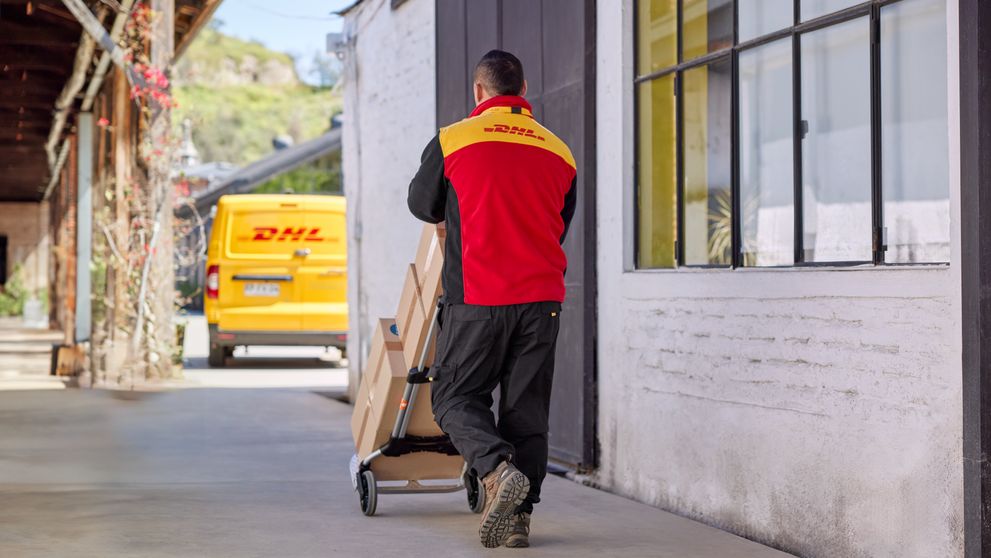The logistics landscape has rapidly evolved, and 2024 presents unique challenges that businesses must navigate to stay competitive. As the global supply chain industry adapts to new realities shaped by technological advancements, sustainability concerns, and regulatory changes, understanding these logistics challenges is crucial as addressing them effectively is essential for maintaining operational efficiency and customer satisfaction. This blog explores four key logistics challenges in 2024 and provides actionable methods for businesses to overcome them successfully.
1. Supply chain disruptions
Supply chain disruptions remain a significant concern in the global supply chain industry, particularly with the lingering impact of COVID-19. In 2024, several factors contribute to these disruptions:
- Geopolitical Tensions: Ongoing conflicts like the US-China trade war and the recent Russia-Ukraine war can cause sudden changes in trade policies, disrupting the movement of goods across borders.
- Natural Disasters: Environmental events such as earthquakes, floods, and hurricanes can interrupt production and logistics, leading to delays and shortages.
- Economic Fluctuations: Economic downturns or currency value changes can affect purchasing power and the cost of goods, resulting in supply chain inefficiencies and crises.1
These disruptions significantly impact the flow of goods, affecting businesses that rely on timely deliveries.
With its growing role in the global supply chain, reliance on imported raw materials, and export-driven manufacturing, Vietnam is particularly vulnerable to these disturbances as delays and shortages can have cascading effects on local businesses. For example, Vietnam's supply chain was hampered by raw material shortages in 2023 due to China’s prolonged geopolitical tensions and strict zero-COVID strategy, threatening industrial and export trade growth in the region.2 This emphasises the need for an increased focus on supply chain management best practices to mitigate the impact of supply chain disruptions, such as:
- Diversifying Suppliers: Reducing dependency on a single source mitigates risks. Alternative suppliers keep the supply chain moving if one faces issues.
- Implementing Risk Management Plans: Develop comprehensive plans that include risk assessment, critical points identification, and contingency measures. Regularly review and update these plans.
- Maintaining Buffer Stock: Keep a buffer stock of essential materials and products to ensure sufficient inventory during disruptions.
- Investing in Supply Chain Visibility Tools: Utilise AI, IoT, and blockchain for real-time tracking and monitoring. Enhanced visibility allows for informed decisions and swift responses.
- Collaborating Closely with Supply Chain Partners: Foster strong relationships with suppliers and stakeholders for better collaboration and proactive risk management.3
By adopting these strategies, businesses in Vietnam can enhance their resilience against supply chain disruptions in the face of an evolving global supply chain landscape.
2. Sustainability and environmental concerns
The growing emphasis on sustainability and environmental responsibility is reshaping the logistics industry globally, and Vietnam is no exception. With increasing awareness of environmental sustainability issues such as pollution, waste management, and resource depletion, businesses worldwide are under pressure to adopt eco-friendly practices.4
In Vietnam, the commitment to solve problems related to sustainable development has been reinforced by governmental efforts, including initiatives aimed at achieving net-zero emissions by 2050. These efforts have significant implications for the logistics sector, necessitating changes in how goods are transported, packaged, and managed throughout the supply chain. The challenges of green logistics, combined with the need to reduce carbon footprints, are prompting businesses to rethink their operations.5
To address these issues and reduce their carbon footprint, businesses can adopt various eco-friendly logistics practices, including:
- Optimising transportation routes: Reducing fuel consumption through better route planning and logistics management to minimise travel distances and avoid congested routes.
- Investing in energy-efficient vehicles: Transitioning to electric or hybrid vehicles to lower emissions and decrease reliance on fossil fuels.
- Using sustainable packaging materials: Implementing biodegradable or recyclable packaging to minimise waste and reduce the environmental impact of packaging materials.
- Adopting a sustainable supply chain strategy: Ensuring that all aspects of the supply chain, from sourcing to delivery, adhere to environmentally friendly practices. This includes working with suppliers who also prioritise sustainability.6
By integrating these solutions, businesses can not only comply with regulatory requirements but also improve their environmental impact. This proactive approach helps businesses in Vietnam align with global sustainability challenges and positions them as leaders in adopting eco-friendly logistics practices.
3. Technology integration
The integration of emerging technologies in logistics is transforming the industry. Digital transformation in logistics, driven by advancements in AI, IoT, and blockchain, is enabling businesses to optimise their operations and enhance supply chain visibility. Disruptive technology in supply chain management, such as automated warehousing and predictive analytics, is helping companies improve efficiency and reduce costs.7
In Vietnam, businesses are leveraging these technologies to stay competitive. AI-powered tools for demand forecasting, for instance, help manage inventory levels more effectively. IoT devices provide real-time tracking of shipments, ensuring transparency and accountability. Blockchain technology enhances security and traceability in supply chain transactions, reducing the risk of fraud and errors.8
To successfully integrate these technologies, businesses are investing in training their workforce and upgrading their IT infrastructure. Partnering with technology providers and staying updated on new technology in the logistics industry also provides a competitive edge.
Recommendations for integrating these technologies include:
- Adopting AI for demand forecasting: AI-powered demand forecasting tools help predict inventory needs more accurately, reducing overstock and stockouts.
- Utilising IoT for real-time tracking: Implement IoT devices to monitor shipments and equipment, providing real-time data on location and condition.
- Implementing blockchain for security and traceability: Use blockchain technology to ensure secure, transparent, and immutable records of transactions throughout the supply chain.
- Automating warehousing operations: Invest in automated warehousing solutions to streamline storage and retrieval processes, increasing efficiency and reducing labour costs.
- Leveraging predictive analytics: Use predictive analytics to anticipate potential disruptions and make proactive decisions to mitigate risks.
By embracing these technologies, businesses in Vietnam can optimise their logistics operations, improve supply chain management, and maintain a competitive advantage in the rapidly evolving market.
4. Regulatory and compliance changes
Navigating the evolving regulatory landscape is a challenge for businesses involved in international shipping and delivery to Vietnam as changes in supply chain regulations impact the flow of goods and require companies to adapt quickly to remain compliant.9
In 2024, businesses must stay informed about new regulations affecting the logistics industry. This includes understanding the requirements for international shipping, customs procedures, and import/export restrictions. Implementing supply chain management strategies incorporating compliance checks and documentation management also helps businesses avoid costly penalties and delays.10
Key strategies for staying compliant include:
- Staying Informed: Regularly monitor regulatory updates and changes in supply chain regulations. Subscribe to industry newsletters, attend webinars, and participate in industry associations to stay updated on new compliance standards.
- Implementing Robust Documentation Management: Ensure all necessary documentation for customs clearance and regulatory compliance is accurately maintained. This includes invoices, shipping manifests, and certificates of origin.
- Conducting Compliance Audits: Regularly review and audit internal processes to ensure they align with current regulations. This helps identify potential compliance gaps and implement corrective measures promptly.
- Training and Education: Provide ongoing training for staff on regulatory requirements and compliance procedures. This ensures everyone involved in the logistics process understands the importance of adhering to regulations.
- Leveraging Technology: Utilise software solutions that assist in managing compliance and documentation. Automated systems can help track regulatory changes and ensure all shipping activities meet current standards.
Collaborating with logistics partners like DHL Express provides valuable support in navigating regulatory changes as well. DHL Express Vietnam offers expertise in customs and regulatory compliance, helping businesses ensure smooth and efficient international shipping operations. Our deep understanding of global supply chain regulations allows businesses to focus on their core operations while ensuring compliance with evolving standards, too.
By adopting these strategies, businesses can effectively navigate the complexities of regulatory changes, ensuring continued compliance and operational efficiency in the global logistics landscape.








